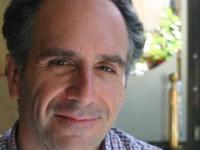Toward the end of World War I, hundreds of U.S. soldiers isolated in the Argonne Forest—known now as the Lost Battalion—fought seemingly insurmountable odds in order to survive. Those who made it home had to learn how to cope with their experiences and the memories of those they left behind.
Ahead of his lecture on November 14, HSP sat down with historian Edward Lengel to discuss his new book Never in Finer Company: The Men of the Great War's Lost Battalion.
HSP: The story of the Lost Battalion is brutal: troops stuck behind enemy lines, running out of food, and subjected to friendly fire. What made you decide to research and write about this story?
Lengel: A couple of things. First, I have a personal connection: Sergeant Alvin C. York, who was involved in the action that rescued the Lost Battalion, was a cousin of mine. And certainly it’s a very tough story; it’s a very painful story. But like many of these stories, there are two sides of it. If you look at it from a human point of view, I’m interested in how people overcome great trials. How do they handle them? How do they learn to depend on each other to get out of this terrible situation? What did they do with the feelings when they came home and the media called them heroes, even though they didn’t want to be called heroes? It’s a very personal story that tells us a lot about ourselves.
HSP: Your book Never in Finer Company: The Men of the Great War's Lost Battalion just came out last month, and it focuses on four men who lived through this conflict. Could you tell us about their experiences?
Lengel: I’ll draw a comparison between two men. One is Charles Whittlesey, commander of the Lost Battalion, who had no military background. He was a lawyer by training, and he had a profound sense of civic duty and devotion to his men. He showed great leadership and great compassion and dedication to his men when they were in the pocket and they came to depend on him for their survival. Then after they came home, they tried to turn him into a hero, but he didn’t want that to happen. Many of his former men came for him to get help—whether psychological help or financial help—and he continued to give everything he had. But he was so consumed by guilt for the men he left behind that he ended up stepping overboard of a ship to end his own life years after the end of the war.
The contrast is Alvin York, who also showed great leadership, and he too was consumed by guilt by the men he had killed or had been unable to save. He was able to find a positive thing to do by creating the Alvin York Foundation. For every penny he got for his celebrity, he donated to the poor and less fortunate. Through his dedication to charity, he was able to find hope or rather solace, and to save himself, and he was able to return to his home and family. So there is a contrast between those who were able to return home and those who weren’t.
HSP: You will be coming to HSP for a talk on November 14. Can you tell us a little bit about what you’ll cover in the conversation?
Lengel: I’ll talk about not just the stories of individual men and women who experienced them, but also about how you get at the truth. Can you trust letters, memoirs or diaries? When is a primary source not a primary source? Just because they claim that they’re first person sources doesn’t mean they’re reliable.
I like to look at some newspaper accounts—for example, those written by reporter and sportswriter David Runyon—that contradicted some of the eyewitness accounts others provided. There is a lot of interest there: what were his motivations to tell a story that would appeal to his readers back home?
There is also a book that was published as Alvin York’s supposed autobiography, but it was actually written by an Australian, Tom Skeyhill, in a fake hillbilly dialect. The book tries to present a vision of York as an Anglo-Saxon hero, and a pure representative of the white race, even though York never believed or presented himself that way. People have used that book as if it was a diary when it really isn’t.
Join us on November 14 to learn more about the Lost Battalion and purchase a copy of Lengel’s new book.

